Search
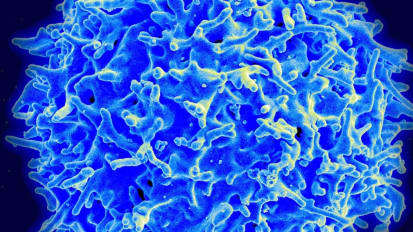 News
News
Killing Pancreatic Cancer with T Cells that Turbocharge Themselves
Novel Immunotherapy Pumps Out Cancer-Killing Cytokines Only Inside the Tumor News
News
Virtual Cardiac Rehabilitation Produces Similar Results as In-Person Treatment
UCSF Study Shows Potential Benefit of Expanding Availability for Patients Cardiac rehabilitation (CR) reduces hospitalization and mortality and improves quality of life for patients with cardiovascular disease. Despite its benefits, only 24 percent of eligible patients in the U.S. participate in CR due to financial and logistical barriers. Video
Video
A Handy Guide to Keep in Reach: Sports Injuries of the Upper Extremity
Orthopedic surgeon Nikki Schroeder, MD, chief of UCSF’s hand, elbow and upper extremity service, shows providers how to pinpoint the problem when patients present with elbow, wrist or hand pain.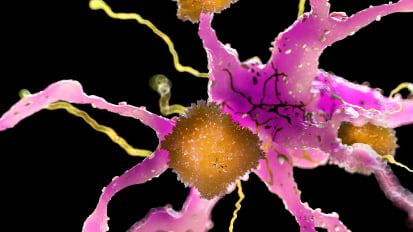 News
News
New Alzheimer’s Trial to Combine Anti-Amyloid and Anti-Tau Therapies to Arrest Disease Progression
A new study will combine an Alzheimer’s medication that slows disease progression in some patients with two drugs that target disease-driving proteins to see whether their effects can be amplified.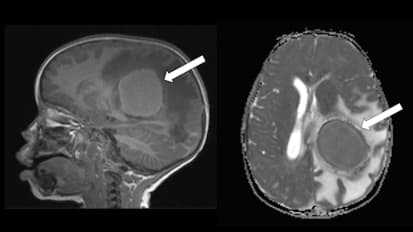 Video
Video
Clinical Case Reports and New mNGS-Based Technologies
Charles Chiu, MD, PhD, discusses cases where mNGS testing saved the life of a patient with undiagnosed neuroleptospirosis, and spared another patient from a potentially unnecessary liver transplant. News
News
New ATS Recommendation: Use Race-Neutral Equations for Pulmonary Function Test Interpretation to Improve Patient Care
An American Thoracic Society (ATS) workshop committee, which included many UCSF researchers, recently released an official statement recommending the use of race-neutral average reference equations for pulmonary function test (PFT) interpretation.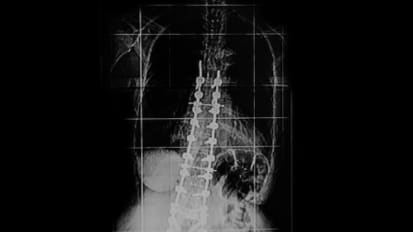 Video
Video
Considerations for Deformity Surgery in the Young Adult
In this presentation Lionel N. Metz, MD, will discuss considerations for the young adult deformity patient, case examples, common pitfalls and modes of failure, and causes of pain after adult reconstruction. Video
Video
Reshaping Care for Heart Failure: The Promise of New Drugs and Devices
Heart failure is increasingly prevalent and continues to have a high mortality rate, yet the future isn’t bleak. Cardiologist Liviu Klein, MD, MS, director of the UCSF Mechanical Circulatory Support Program, presents cutting-edge therapeutic options, including drugs, surgical implants and advanced monitoring systems.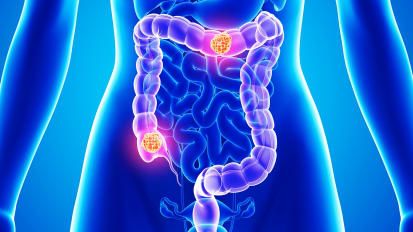 News
News
An Extraordinary Response: A Young Woman’s Path to Overcoming Metastatic Colon Cancer
28-year-old woman mother of two was healthy up until a month prior, when she developed severe anemia, diarrhea and emesis, accompanied by a 25-pound weight loss. Video
Video
Using VADs in Advanced Heart Failure: Caring for a Growing Population
With heart failure’s prevalence and poor prognosis, it’s important to understand the difference VADs can make. Cardiologist Dr. Liviu Klein discusses the latest devices, implantation techniques and monitoring methods, as well as outcomes and best candidates.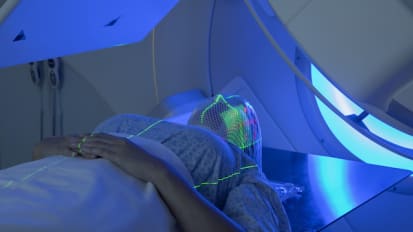 Video
Video
Incorporating Clinical Trials Into Patient Care: A Unique Approach to Treating Head & Neck Cancer
With the advent of immunotherapy, UCSF physicians are incorporating clinical trials into head and neck cancer patient care and changing the treatment paradigm. Document
Document
Minimally Invasive and Robotic Thoracic Surgery
UCSF Health offers a robotic thoracic surgery program specializing in treating thoracic disease. News
News
UCSF Launches Initiative to Address Disparities in Pulse Oximetry Performance
This project seeks to improve accuracy for patients with darker skin pigmentation. Video
Video
Chronic Pelvic Pain and Endometriosis: Part 3
Jeannette Lager, MD, details endometriosis treatment options including expectant management, hormonal medical treatments, hormonal modulating medications, pain management, integrative regimens and surgery. She also explains the importance of a multidisciplinary program to address this multifactorial condition. Video
Video
Assessing Cognitive Decline in Primary Care: New Tools and Algorithms for Everyday Practice
Although timely diagnosis can significantly improve a patient’s future, dementia is underdiagnosed and often detected late. Video
Video
Breast Cancer Imaging: How to Optimize Screening for High-Risk Patients
All women should get regular mammograms, but what about those at elevated risk? Radiologist Kimberly Ray, MD, presents this quick update to ensure timely supplemental screening practices and appropriate imaging decisions. Video
Video
Multidisciplinary Approach to Treating PCOS
Heather Gibson Huddleston, MD, explains the multidisciplinary approach used by the UCSF Center for Reproductive Health when treating patients with polycystic ovary syndrome (PCOS), as well as additional options for treatment models. Video
Video
A Guide to Gout: Keys to Recognizing and Managing This Damaging Disease
Noting that gout is common yet under-recognized and undertreated, rheumatologist Kerstin Morehead, MD, presents a valuable update on risk factors, associated conditions, and treatments for both acute flares and chronic disease. Video
Video
Fall’s Virus Harvest: What to Know About COVID, RSV, Flu, and the New Vaccines
This talk provides answers to the questions clinicians are starting to hear every day, including how worried to be about current COVID cases, when the latest COVID vaccines will be available, and whether they’ll work better against upcoming variants.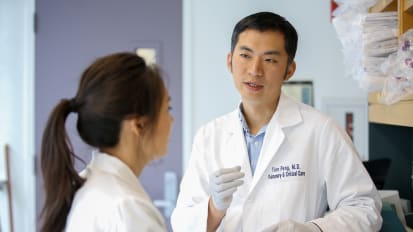 News
News
UCSF-led Study Uncovers Unique Stem Cell Trajectory in Lungs Damaged by COVID-19 and Pulmonary Fibrosis
In a collaborative study between UCSF researchers appearing December 30 in Nature Cell Biology, UCSF researchers Jaymin Kathiriya, PhD, and Chaoqun Wang, PhD, discovered that severe lung injuries can trigger lung stem cells to undergo abnormal differentiation. Drs. Kathiriya and Wang, supervised by Hal Chapman, MD, and Tien Peng, MD, respectively, utilized stem cell organoid models to uncover a novel stem cell pathway that is seen in severely injured lungs from COVID-19 and idiopathic pulmonary fibrosis patients. Video
Video
Slumber Secrets: New Insights into the Complexities of Sleep and Managing Common Issues
Sleep medicine specialist Rochelle Zak, MD, delivers a rousing update on what’s known about sleep’s stages and physiological payoffs, followed by her guide to assessing and treating insomnia – by far the main sleep issue seen in primary care.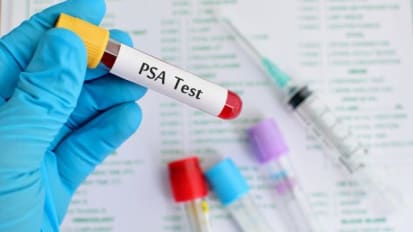 News
News
Personalizing Prostate Cancer Screening May Improve the Accuracy of Detection
The accuracy of prostate-specific antigen (PSA) screening for prostate cancer can be improved by accounting for genetic factors that cause changes in PSA levels that are not associated with cancer. News
News
New Device Reduces Heart Failure Symptoms
Electrical pulses to the carotid artery help improve exercise capacity and reduce symptoms like shortness of breath and fatigue. News
News
How Targeting Aging Cells Could Improve Lung Disease Treatment
UCSF Researchers Identify Drug Pipeline to Attack Aging Cells in Diseased Lung Tissue.

